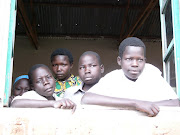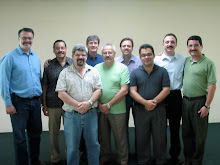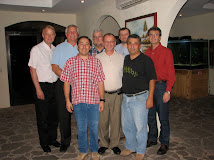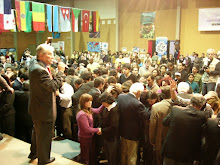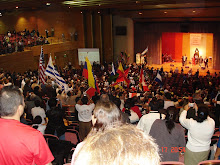Between Persecution and Favoritism | By Harold Segura
Harold Segura C. | Chronicles and Reflections from Lausanne IV (4) Seoul, September 25, 2024
 |
| Lausanne IV Congress - Day 4. PHOTO: Miheret Tilahun (Twitter) |
Later, I learned that in yesterday’s press conference, some Lausanne leaders said that certain traditional leaders of Korean churches had requested changes in some paragraphs related to sexuality.
The morning session began with music and a Bible study based on Acts 12:15, led by Dr. Patrick Fung, the Congress’s program president. The church in the book of Acts, though persecuted, remained faithful to the Gospel. What was their secret? Fung responded by highlighting three fundamental aspects:
First, it was a movement without social or economic power, without sophisticated strategies, but with courage and faith. It was a church with firm convictions. Second, it was characterized by trust. Barnabas is one of the best examples of that trust: he gave everything he had and embraced the former persecutor Saul of Tarsus, whom others feared. Finally, Fung emphasized that it was a community faithful to the Gospel.
At our dialogue table, we discussed several questions about the day's theme, following the ones provided by the congress: How should we view persecution and obstructions in the mission? How should we pray for those suffering persecution?
The session continued with a heartbreaking testimony from Babu Verghese, an Indian journalist, historian, and author, who spoke about the persecution that Christians face in India. His account was so passionate and filled with pain that it exceeded the allotted time. The moderator, with care, placed a hand on his shoulder and asked him to allow a closing prayer. The auditorium fell into a bewildered silence.
The first morning session ended with testimonies from China and Iran, showing that while Christian populations in many parts of the world suffer painful and outrageous persecution, this doesn’t mean there is persecution everywhere, as is sometimes portrayed.
At our dialogue table, we reflected on this. In Latin America, i.e., although there are some cases of persecution, in most of the continent there isn’t any. In fact, instead of persecution, what exists in many places is favoritism. Many evangelical groups are preferred, protected, and even promoted by political groups.
Today, we were fortunate to finish the sessions earlier than usual. We were given the afternoon off, something much welcomed and needed. At the end of this day, I pray: Lord, protect and give courage to those who are persecuted (in India, Afghanistan, Saudi Arabia, Morocco, Mali, Iran, Algeria, Myanmar, Iraq, Syria, Burkina Faso, Laos, Bangladesh, Uzbekistan, Nicaragua, Niger, Mauritania, Ethiopia, Bhutan, Vietnam, Tunisia, and so many other places). Stop their persecutors and the forces of evil.
Calm the fear of those who, though not persecuted, insist on believing they are or that they soon will be (“martyr syndrome”). Open the eyes of those who, under the banner of the Gospel, persecute others, believing this world has room only for them. Calm their intolerant faith fanaticism.
By your grace, protect those who suffer persecution for just causes, even if it’s not for preaching the Gospel, but for the values of the kingdom: justice, reconciliation, and peace. Amen.
About the author:
 Pastor and theologian Harold Segura is Colombian, currently residing in Costa Rica. He is the Director of Faith and Development for World Vision in Latin America and the Caribbean and the author of several books. Previously, he served as Rector of the International Baptist Theological Seminary in Colombia.
Pastor and theologian Harold Segura is Colombian, currently residing in Costa Rica. He is the Director of Faith and Development for World Vision in Latin America and the Caribbean and the author of several books. Previously, he served as Rector of the International Baptist Theological Seminary in Colombia.
















